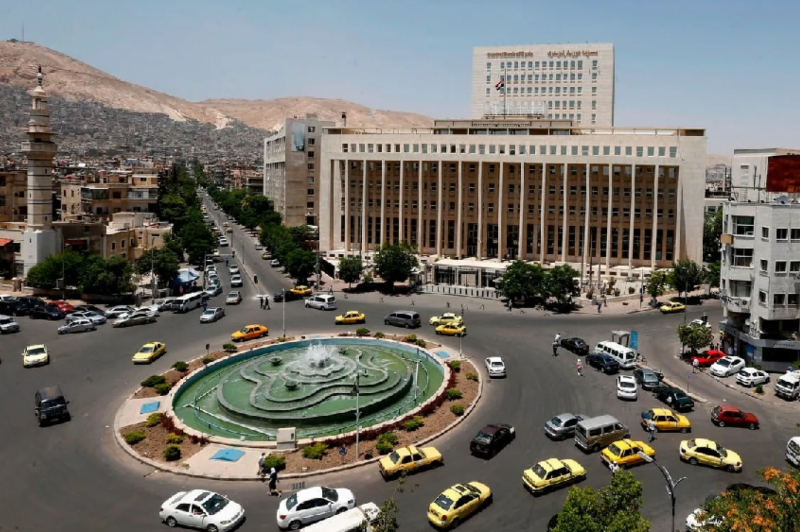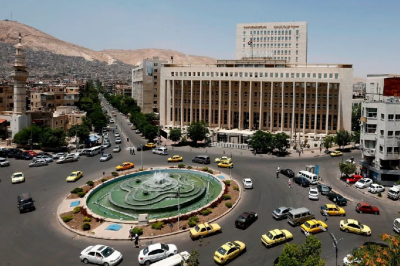In recent years, the Syrian people have faced unforeseen circumstances, marked by division and unexpected disputes among various factions since the events in Dar'a in 2011. This has led to tragic conditions surrounding this proud Arab nation. The conflict over Syria is not new; there are many books in the Arab library that discuss the manifestations of this struggle over this vital area of the Mashreq that shares borders with Lebanon, Israel, Jordan, Iraq, and Turkey, in addition to the fact that Palestine is an integral part of the greater Levant region, with its proximity to the Mediterranean Sea making it a true icon of the coast.
Historically, Syria is a melting pot of successive civilizations, cultures, and the three Abrahamic religions. It is where the idea of Arab nationalism was born and spread to surrounding countries. The phrase, "The pride of the East begins with Damascus," as stated by the Prince of Poets, Ahmed Shawqi, encapsulates its significance. From there, the Umayyads launched the first Islamic caliphate based on inheritance. From day one, the struggle over the concept of kingship and the consolidation of power began, favoring groups that gained strength and initiative, reflecting the aspirations of those embracing the new religion, both spiritually and worldly.
As the Islamic conquests unfolded, it became evident that the Levant, or Greater Syria, was the first Arab basin receiving the early Muslims who established the foundations of governance and entrenched the heredity of the throne under the name of the caliphate, raising the flags of the Commander of the Faithful, even at the expense of truth and justice. Personally, though of Egyptian nationality, I am a fervent Arab; I appreciate the value of the Syrian territory in shaping the Arab identity. If you ask an Egyptian about their identity, they will say they are Muslim Egyptians, as religion is deeply rooted in the Egyptian psyche. However, if you ask a Syrian about their identity, they will unequivocally state, "I am an Arab from Syria," reflecting a cultural rather than a purely sectarian essence.
Throughout its modern history, the Syrian state has witnessed a continuous struggle for power, influenced at times by the desire to control access to the Mediterranean Sea and at other times by the need for a foothold near the Israeli state, considering that Israel's security remains one of the West's top priorities, especially that of the United States. When examining the ambitions and desires of the countries surrounding Syria, we can identify several key points, keeping in mind that terrorist groups pose a significant threat to the Syrian state, which once was said, "There is no war in the Middle East without Egypt and no peace without Syria."
We can outline the geostrategic axes surrounding the Syrian state as follows:
First: The Russian axis, which seeks access to warm waters from all directions, sees its only outlet to the Mediterranean through Syria, specifically via the port of Latakia. Russia is acutely aware of Syria's significance as a strategic pillar against Southern Europe and North Africa, as well as against Western fleets navigating the Mediterranean. It cannot be ignored that President Assad's continued authority has largely depended on Russian support, especially during critical phases when the odds were against the Syrian army facing the unholy trinity of terrorist elements, Turkish ambitions, and Israeli aspirations.
Second: The Turkish axis still mourns the remnants of the Ottoman Empire and is driven by nationalist sentiments. Ankara views Syria with particular interest due to its ties to the Kurdish issue and transportation links to the Arab Mashreq, as well as the opportunity to counter both Russian and Western influence if the Turkish state can realize those ambitions. I have no doubt that Turkey has regional aspirations in northern and western Syria, as well as similar ambitions nearing those in northern Iraq. There are times when it seems that President Recep Tayyip Erdoğan adopts the role of Ottoman caliph, needing only a cloak and turban, equipped with exceptional diplomacy that plays both Eastern and Western angles, as evidenced by Ankara's stance in the Russian-Ukrainian war.
Third: The Iranian axis identifies Iran as Syria's primary ally, using all political and sectarian tools, believing that Syria is the only Arab state strongly linked to Tehran. This connection was reinforced by the events of the Arab Spring and its aftermath, alongside Iran’s strategic and military support to Syria when needed. Undoubtedly, some Arab states, including the Arab League, contributed to Syria's leaning towards Iran due to the isolation imposed by Arabs on this crucial state in the Arab system, referring to the Syrian Republic. Moreover, part of ISIS's hostility toward the Syrian state stems from its inherent animosity toward Shiite Iran, along with Turkey’s support for what was termed the "Islamic State" at various points in the recent past.
Fourth: The Israeli axis, which views Syria with concern stemming firstly from geographical proximity and secondly from a history of confrontations. However, the greater source of concern for Tel Aviv regarding Damascus lies in the latter's relationship with Tehran. Israel perceives the Iranian state as the primary threat to its security, especially as it approaches achieving nuclear capabilities. Hence, Israeli strikes on Syrian sites are always aimed at what Tel Aviv perceives as Iranian training centers or weapons depots linked to Tehran.
Fifth: The Saudi and Gulf states axis. This group of Arab states does not tolerate insults or inappropriate remarks under any circumstances. Several years ago, there were statements from Damascus that offended certain rulers in the Gulf, leaving a lingering impact necessitating years to mitigate. Nevertheless, nationalist sentiments ultimately prevailed over historical grievances, raising the possibility of Syria returning to the Arab fold, thus closing a painful chapter in the historical relations between Damascus and the Arab system. Recent moves by Egypt and several Gulf states reflected a rising nationalist sentiment affected by the earthquake events, prompting many Arab states to send urgent aid to the victims and displaced.
Syria has remained resilient amid a fierce clampdown of terrorist forces on one side and Turkish ambitions and Iranian aspirations on the other, along with Israel's intense desire to deprive this Arab brother country of the advantages afforded to it by modern frameworks of national movement. However, there can be advantages in adversity; the earthquake that brought down houses and leveled buildings, costing Syrians their families and compatriots, may indeed lead to the end of Damascus’ suspension from the Arab League and open doors for its return to normalcy and its rightful place in reviving Arab solidarity and enhancing Syria’s national stature among its Arab neighbors.




